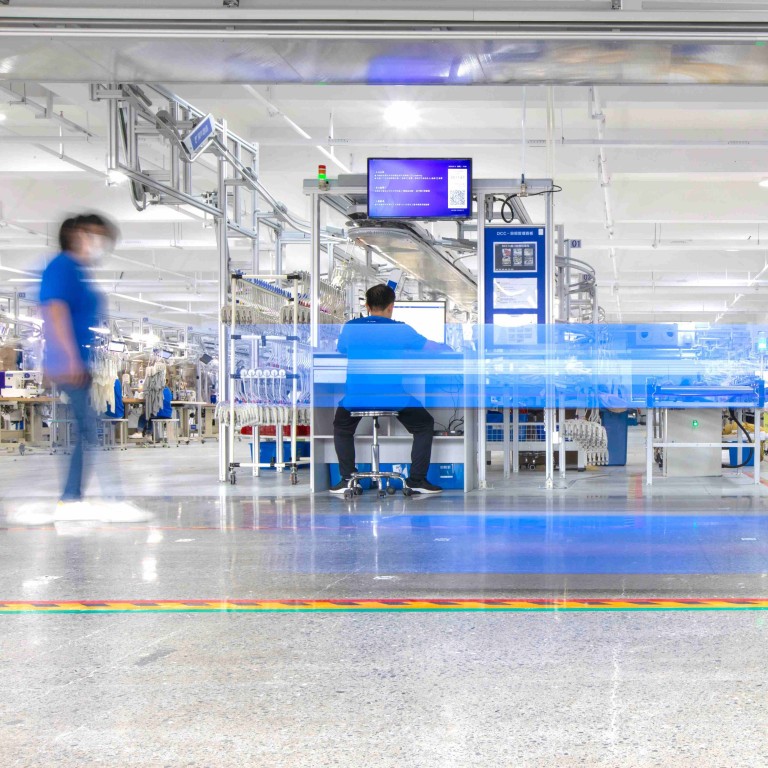
Alibaba to ramp up digital transformation in China’s US$4 trillion manufacturing sector
- The e-commerce giant’s New Manufacturing pilot, Xunxi Digital Factory, is powered by technologies such as process and cost planning, automated in-house logistics and its own manufacturing operating system
- Xunxi, which means fast rhino, has initially offered its cloud-based manufacturing supply chain to small firms in China’s apparel industry
Alibaba Group Holding, which runs the world’s biggest e-commerce platform, aims to provide small companies with an advanced digital manufacturing infrastructure that could help transform how China produces and brings goods to market.
“Data is the core of New Manufacturing, and harnessing data insights is key to capturing new
opportunities in the shift in consumer preference for personalised, rather than mass-produced,
goods,” said Alain Wu, chief executive of Alibaba’s Xunxi, in a statement on Wednesday.
“This allows traditional manufacturers to improve profitability and reduce inventory levels, while still being able to meet these personalisation needs,” said Wu, referring to how SMEs would benefit from the digital transformation of China’s more than 30 trillion yuan (US$4.4 trillion) manufacturing sector.
The latest initiative by Alibaba, parent company of the South China Morning Post, comes as China emerged as the first major economy to rebound from the coronavirus shock, posting 3.2 per cent growth in the second quarter after a 6.8 per cent contraction in the first three months of this year.
Xunxi, which means fast rhino, is expected to help empower the digital transformation of more companies in manufacturing as well as other industries in China. The Five New strategy initiated by Alibaba’s Ma also includes New Retail, New Finance, New Technology and New Energy.
Apparel, one of the largest categories on Alibaba’s online retail marketplaces in China, was identified as the starting point for Xunxi because the sector is beset by lengthy production cycles and high inventory levels, according to the company.
Alibaba posts 124 per cent gain in quarterly profit, sees China retail back to pre-pandemic levels
Powered by technologies such as process and cost planning, automated in-house logistics and Xunxi’s own manufacturing operating system, the factory is able to produce small-batch orders at a reasonable cost and with shorter delivery times, consequently increasing manufacturing efficiency from 25 per cent to an average of 55 per cent, according to Alibaba.
Still, it remains to be seen how fast Xunxi can convince more SMEs to adopt its smart manufacturing capabilities amid the disruptions caused by the Covid-19 pandemic in China and around the world.

